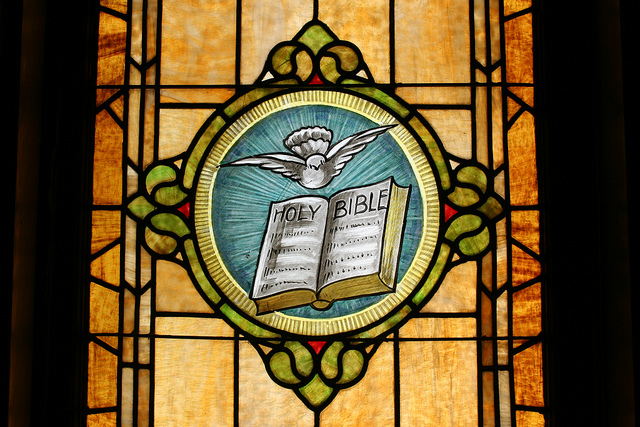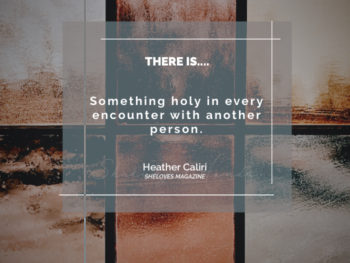
I used to think I was a terrible Christian. Why? I didn’t read the Bible regularly for fifteen years.
I told myself I was recovering from legalism. Then I was caring for a newborn, a toddler, another newborn.
But when I remembered studying the Word every day, I shriveled with shame. Didn’t good Christians read the Bible without fail? Wasn’t personal Bible study the one spiritual discipline we couldn’t do without?
As I researched my book, I started confronting that question head-on, reading about the history of the Word, our spiritual forefathers, and the ancient practices of faith. What I found shocked me—and completely changed the way I approach the Bible. Here’s what I learned:
- The New Testament is even newer than Christianity.
The canon for Christians took a while to form. Give or take a few hundred years after the books themselves were finished, the early church was debating which of the texts in circulation were included.
As Diana Butler Bass put it, “The first Christians…prayed for several hundred years before they had a canon of scripture.” Church fathers formed key doctrines and pastured their flocks without Study Bibles on their laps.
This did not prevent the Spirit of God from moving.
- For regular people like you and me, actually reading the Bible is even newer.
When we read our Bibles, the language moves out of the way, translucent as glass. We don’t have to think about the historians, translators and theologians that make that window seem transparent.
For most of Church history, that window wasn’t transparent at all. It was a brick wall with tiny chinks in it.
You only got through if you were a highly trained scholar.
But even after vernacular translations knocked out a few of the bricks in the wall, poor people, women, and slaves were often left out.
Yet the most vibrant, whole, Christ-proclaiming spirituality in America was developed by slaves, singing Scripture as spirituals even while most were denied the right to read.
- Also new? Reading the Bible by yourself.
It’s not that our foremothers and fathers didn’t know Scripture. They just knew it differently. They heard it proclaimed in their congregations. They heard it sung and chanted. They saw it in passion plays, or listened to other slaves proclaiming it. They saw its words latticed into the stained glass windows above them on the Sabbath.
How would it feel to act out Scripture with every sinew? To know Scripture mostly as song? To see it arching over you, every bit as integral to the cathedral as the joists holding up the ceiling?
The ancient body of Christ wasn’t impoverished just because they didn’t read a chapter of the New Testament every day.
- We rarely even think of—much less learn from–the countless generations of saints that encountered the Word differently.
The more I learned about the history of the Bible, the more I realized the idea of studying the Bible each morning is NEW. It’s a cultural phenomenon that has very little to do with ancient practices of faith. For most of Christian history, it’s a privilege that only the powerful had access to.
For centuries, the humble couldn’t count on reading Scripture by themselves. Instead, they prayed the Lord’s Prayer. They took communion. They proclaimed ancient creeds. They worshipped with jubilation. They encountered the Word in community.
They made do, in spades.
What was their experience of the Living Word? How did they cling to Jesus without a book to help them? What disciplines did they use to connect to the Holy Spirit, to work out their salvation with fear and trembling?
***
Look, I wouldn’t go back. Reading the Bible is lovely and wonderful. I’m so grateful for personal access to the living and active Word.
But I’m just as grateful to know the history of the scriptures, the varied spiritual practices that have sustained the saints, and the long tradition of humble people encountering the Spirit—with and without the Bible.
I’m blessed to know there’s an abundance of pathways leading me to the Living Word himself.
Image credit: Lars Hammar














 Bright, Lucky and Sweet
Bright, Lucky and Sweet